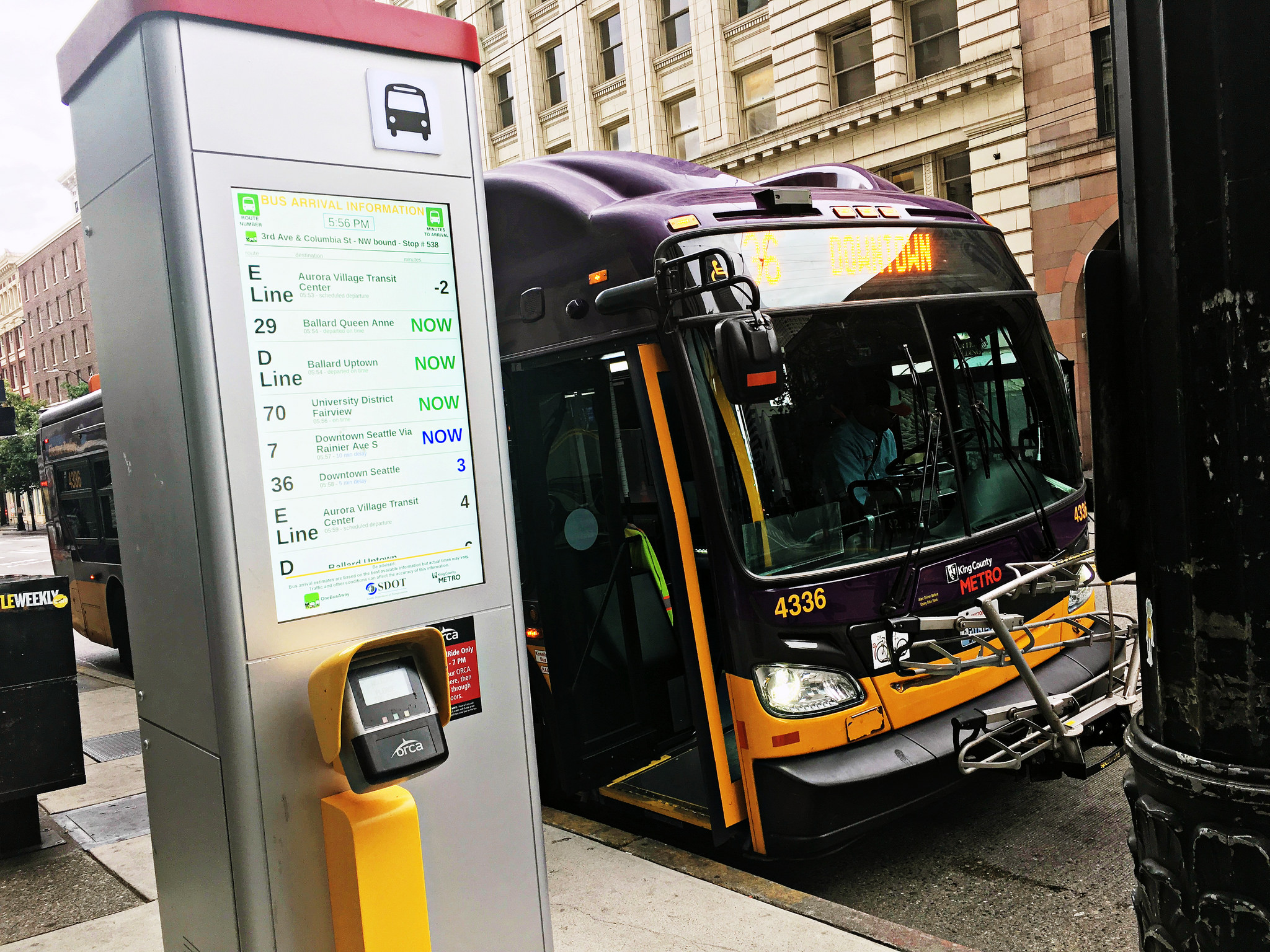
Budget season for King County and Seattle governments has drawn to a close. Despite the unprecedented financial challenges due to COVID, transit and other healthy, sustainable transportation projects and programs saw strong support from elected leaders.
In line with our COVID recovery framework, Transportation Choices Coalition advocated for budgets (here and here) centering racial equity in service planning and programming; prioritizing transit as a component of overall economic recovery; and pursuing and supporting potential long-term funding solutions.
Thank you to community members, King County Equity Cabinet community leaders, and partner organizations for speaking up; and to elected leaders for prioritizing equitable transportation!
Here are highlights from adopted 2021-22 budgets:
King County
- Increased ORCA distribution — This budget requires Metro to distribute youth ORCA cards through schools once they return to in-person learning, thanks to leadership from Councilmember Claudia Balducci.
- Continued support for the Subsidized Annual Pass Program — This new program, which provides those at or below 80% of the Federal Poverty Level with no-cost transit passes, began implementation in the Fall of 2020 and will continue next year with support in the budget.
- Accountability for transit police spending — Thanks to Councilmember Girmay Zahilay, the Council will have greater oversight on Metro contracts with the King County Sheriff’s office (aka Transit Police). His $5 million proviso will increase accountability, requiring reporting to Council on the goals of Metro’s safety and security functions, as well as proposed recommendations to restructure or reduce involvement by law enforcement agencies.
- Support for Metro’s Mobility Framework — This year’s budget process encouraged a robust discussion on transit service allocation. Thanks to the advocacy of many community leaders, as well as leadership from Councilmember Dave Upthegrove, the Council offered continued support for the adopted Mobility Framework. The Mobility Framework, which was co-created with the Metro Equity Cabinet, prioritizes a regional approach to planning and considers equity (and historic inequity) as new transit service is added to the system.
- Restarting RapidRide Planning. Though Metro has delayed anticipated new RapidRide Lines K, J and R due to loss of revenue from the economic crisis, Councilmember Balducci included a budget action directing the agency to continue planning for the postpandemic restart of these lines — rather than completely pausing all work. This ensures Metro is as ready as possible to implement when funding is available.
- Funding for Fleet Electrification — Though this work has slowed down, the 2021-22 budget includes funding to continue electrification of the transit fleet, with a plan to acquire 300 coaches by 2028. Councilmember Rod Dembowski continued to be a strong leader of this work.
Seattle
- Accountability for new car tab spending — The council used this budget to increase car tab fees by $20, raising approximately $3.6 million in 2021, and $7.2 million in following years for transportation. Initially, Councilmembers sought to tie this spending to bridge maintenance, but as a result of quick advocacy and leadership from Council President Gonzalez, a broader set of stakeholders will now help develop the spend plan in early 2021. TCC and partners want to see transit funding prioritized, especially as the new voter-approved STBD brings in less for transit service than the prior measure.
- Strong support for multimodal transportation — Thanks to transportation and environmental partners in the Move All Seattle Sustainably Coalition, the budget includes funds to complete the Georgetown to South Park Trail, repair sidewalks on Rainier Avenue, add protected bike lanes in South Seattle, complete the route 44 multimodal corridor project, and build new sidewalks on Beacon Hill.
- Continued funding for SDOT Equity Workgroup — We are heartened to see Seattle continue its commitment to community-informed transportation work through funding the SDOT Equity Workgroup. This cohort of trained community leaders has developed a transportation equity agenda that will guide the city as it invests in programs and infrastructure.
- Reducing policing in transportation — This year’s budget took the unprecedented step of transferring parking enforcement from the Seattle Police Department to SDOT, given that its core functions — the management of street parking and the right-of-way, and the enforcement thereof – is more appropriately situated in SDOT. This move has sparked an opportunity to review the role and harmful impacts of policing and enforcement in the larger transportation system, and we look forward to supporting further related efforts.
Sound Transit
The Board of Directors will vote to adopt Sound Transit’s budget at its meeting this month. Facing major shortfalls, and an unpredictable recovery, the agency has repeatedly discussed the potential to revisit the budget mid-2021, and during the realignment process. We will continue to monitor the budget for an equity-centered realignment approach, as well as support for fare affordability and enforcement reform.




